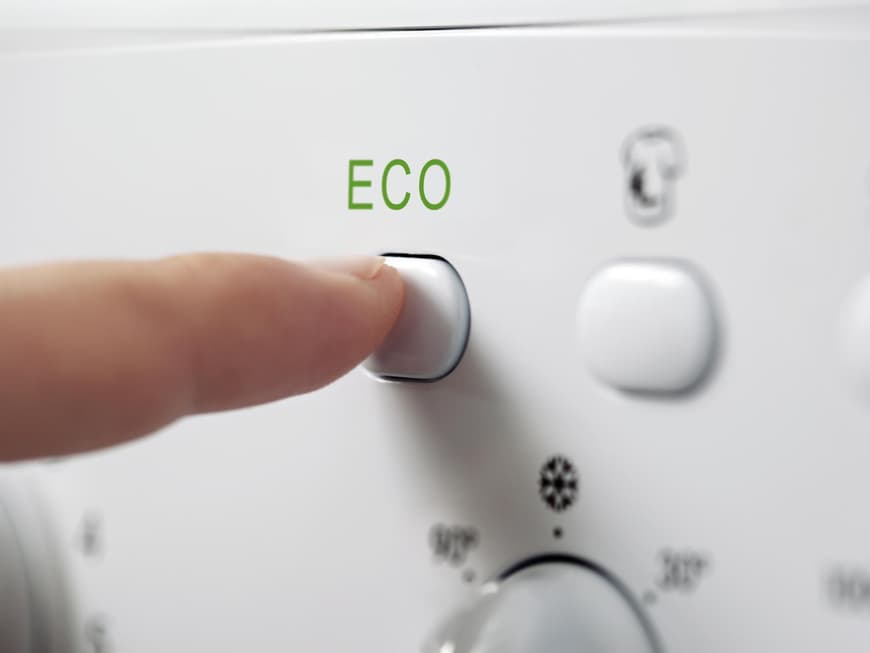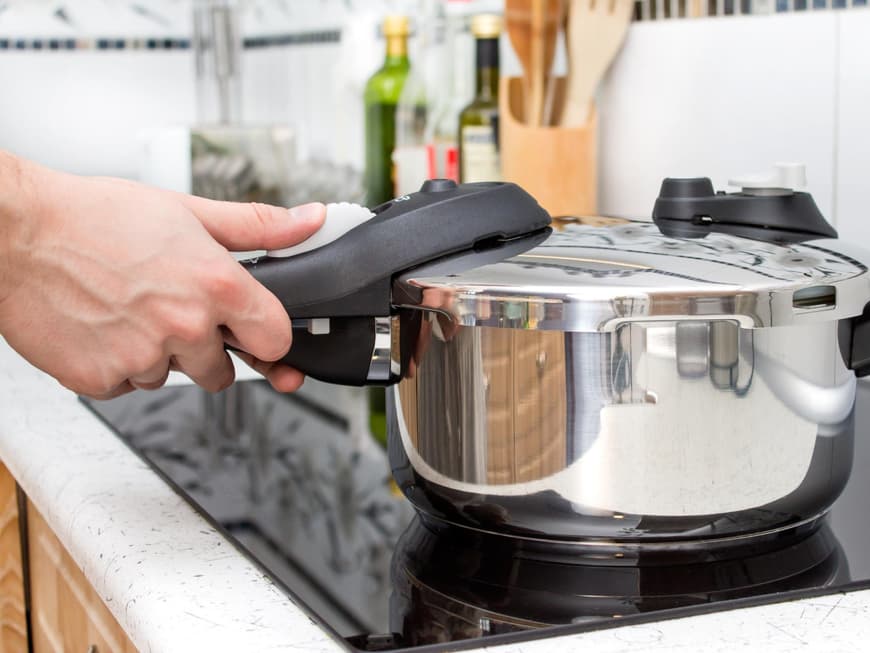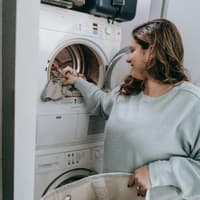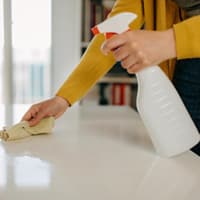Clever energy saving - when cooking and cooling:
We use the oven and fridge every day. These clever tricks for saving energy in the home are particularly worthwhile:
Use a pressure cooker: It's super efficient. It can save you up to 40 euros a year.
Use residual heat: Turn off the stove about ten minutes before the end of the cooking time.
Use a kettle: It brings the water to the boil much faster than the stove - with less power consumption.
Cook with a lid: without one, you will need many times more energy. Also make sure that the lid fits the pot - and closes properly. This helps to save energy!
Position cleverly: Do not place cooling appliances next to the stove and protect them from sunlight. Every degree less ambient temperature reduces consumption by six percent.
The right temperature: The fridge does not need to be colder than seven degrees. Set the freezer compartment to 18 degrees. Also, only put in completely cooled food.
Save energy by defrosting: Whenever thick layers of ice have formed. This ensures that the freezer has to work harder.
Heating: Save energy in winter
Heating consumes around three quarters of household energy. Here's how to keep costs down:
Do not tilt windows: Because this causes rooms to cool down too much, you lose 200 euros a year. It is better to ventilate several times a day and turn off the heating during this time.
Don't overdo it: Do not first overheat the rooms and then cool them down again by airing them. According to the German Tenants' Association, these are the ideal room temperatures - also for saving energy: 20 to 22 degrees in living rooms, 18 to 20 in the kitchen, 16 to 18 in the bedroom and a maximum of 23 in the bathroom. Lowering the temperature by one degree saves six percent of heating energy.
Keep the heating clear: If there is furniture in front of the radiator or it is covered with curtains, this can reduce the amount of heat emitted by up to 15 percent.
Fit a timer: You can use a radiator controller to set when the heating should go on and off. This way, the heating really only comes on at sensible times - and you don't have to remember to turn the temperature down every day when you go to work.
Practical: a timer that you can control with your cell phone when you're out and about (e.g. from RWE, approx. 50 euros). If you come home late, simply delay starting the heating.
Seal cracks: Check whether the windows and doors are tight. The test: Clamp a sheet of paper between the frame and the window. If it can be pulled out easily, a new seal is needed.
Stay away from fans: Only use small electric ovens and fan heaters in an absolute emergency. This is because they consume an enormous amount of energy.
Fit insulating foil: Available from DIY stores (approx. 20 euros). They go behind the heating, as the walls here are often thin.
Save energy - tips for washing:
One machine cycle can cost you more than one euro. Saving energy makes it cheaper:
Fully loaded: When buying a machine, make sure that the drum is not too large. For a family of four, six kilos is enough. Five for small households. As a general rule, only load the drum so full that there is still room for a fist at the top.
Do not set it too hot: Normal colored laundry also gets clean at 30 degrees. 40-degree laundry uses 40 percent more energy, 60-degree laundry another 40 percent more.
Spin instead of dry: It is better to spin the laundry a little longer instead of putting it in the dryer. This consumes much more energy.
Choose ironing moisture: If you do fire up the dryer: do not set ironing laundry to "cupboard dry", but to "iron damp". Clothes are easier to iron when they are slightly damp - and the dryer helps to save energy.
Save energy with the lighting:
You can also save energy in the dark season - here are the tips:
Use LEDs: They make a much nicer light than halogen bulbs and last up to 15 years. Over time, you save 180 euros per lamp.
Light-colored walls: Intensify the lighting. And you can get by with low wattages. Incidentally, bright lampshades have the same effect.
Motion detector: Installation is particularly useful for outdoor lighting so that it does not burn permanently. Use solar power: Whether lamps for the front garden or table lamps for the windowsill: there are more and more attractive, solar-powered variants.
Using solar power: Whether lamps for the front garden or table lamps for the windowsill: there are more and more beautiful, solar-powered variants.
Decorate sparingly: As the festive season approaches, instead of colorful fairy lights and opulent illuminated decorations, use handcrafted items or candles as Advent decorations.
Save energy - tips for hot water:
Turn off the tap: It sounds simple. But many people leave the water running for an unnecessarily long time when brushing their teeth - and then leave it on warm. Make a conscious effort to avoid this.
Don't wash up by hand: Modern dishwashers actually use less hot water. They only need 0.5 to 0.7 liters per place setting. And to be honest, the machine saves us a lot of work. However, the machine should always be fully loaded.
Solar energy: Do you have a house? Have you ever thought about solar panels to save energy? Just 1.5 square meters per person is enough to cover 60 percent of your hot water needs. Even more in sunny areas.
Better to take a shower: Unless you let the water splash on you for ten minutes. A bathtub holds about 120 liters for about 55 cents. A three-minute shower, on the other hand, only uses about 40 liters for about 20 cents.
Economical shower head: It uses two thirds less water per minute than a normal one.
Wash hands cold: The tap is often set to warm, even though we only want to wash our hands briefly. Get into the habit of moving the lever to the cold setting after each use.
Save energy with household appliances:
Living room, kitchen, study - the big power guzzlers everywhere can be easily tricked into saving energy in the home:
Small but mighty: a sandwich maker consumes less than the oven, a laptop less than a stand-alone PC.
Connect correctly: Many dishwashers and washing machines can be connected directly to the hot water supply. This saves you having to heat up the water. Prerequisite: The water is heated with gas or oil.
Power strips with a switch: This allows you to switch off all appliances completely. Because standby mode also consumes electricity.
Observe the energy label: Appliances with an A+++ consume the least, those with a
G the most.








